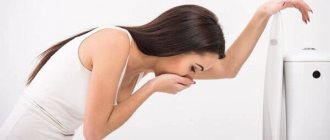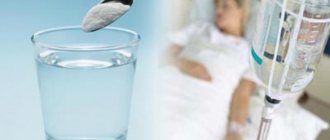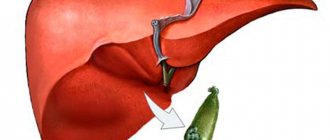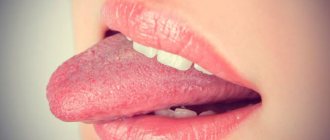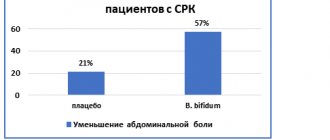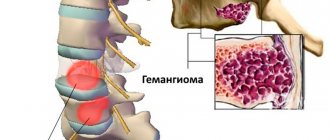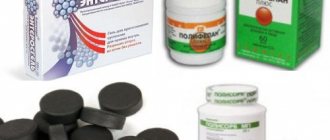Anonymously
Around the clock
Attention! The material contains information about substances, the use of which can cause serious harm to your health!
- Causes of diarrhea after alcohol
- The next day
- Straightaway
- In a few days
- The morning after drinking
- After giving up alcohol
- In an adult
- Why does diarrhea occur after drinking alcohol?
- Is intestinal disorder a sign of binge drinking?
- Loose stools after alcohol
- Vomiting and diarrhea
- Water diarrhea
- Yellow diarrhea
- Green diarrhea
- Diarrhea with bile
- Diarrhea with blood
- Fever and diarrhea
- Red diarrhea
- Diarrhea with foam
- Prolonged diarrhea
- Diarrhea constantly
- Black diarrhea
- Dark diarrhea
- Severe diarrhea
- Abdominal and stomach pain
- Dependence of diarrhea on types of alcohol
- Diarrhea after beer
- Diarrhea after wine
- Diarrhea after champagne
- Diarrhea after vodka
- Diarrhea after cognac
- Diarrhea after whiskey
- Treatment of alcoholic diarrhea
- What to do?
- What to drink?
- How to stop?
- Diet
- Prevention
Diarrhea after alcohol is a common accompaniment of a hangover. In reasonable doses, alcoholic drinks do not cause serious dysfunction of organs and systems, but excessive consumption leads to burns of the mucous membrane of the gastrointestinal tract. As a result, loose stools occur. Read more about the causes of this phenomenon and first aid methods.
Causes
There are many reasons for diarrhea after alcohol. The problem can be either a normal hangover or dysfunction of organs and systems.
The next day
An upset bowel movement the day after a feast most often indicates general intoxication. Ethanol, which is part of strong drinks, provokes intoxication, as a result of which the body activates maximum resources to cleanse ethanol metabolites. Vomiting and defecation are the main ways to cleanse the body.
Straightaway
Severe diarrhea after alcohol may indicate general poisoning. More often this happens when drinking low-quality alcoholic beverages, but the reason may also lie in the exacerbation of chronic diseases. This could be dyskinesia, gastritis, colitis, pancreatitis or an ulcer.
In a few days
Prolonged diarrhea may indicate serious damage to the mucous membrane of the gastrointestinal tract. Ethyl alcohol plays the function of an antiseptic, which destroys not only harmful microorganisms, but also bacteria involved in the digestion process. As a result, dysbiosis develops, requiring timely treatment.
In the morning
The cause of morning diarrhea is a hangover. You can help the body cleanse itself of toxins using special absorbents.
After refusal
On the first day after giving up alcohol, acetaldehyde accumulates in human tissues, a highly toxic substance that provokes a number of symptoms: tremors of the hands and feet, nausea, headaches, etc. Within 2-3 days, a peak concentration of acetaldehyde is observed, but over time it decreases, and the patient’s general well-being returns to normal.
In case of withdrawal of alcoholic beverages after a long binge, abstinence increases, requiring medical intervention.
In an adult
Diarrhea after drinking alcohol is more often observed in people in adulthood and old age. This is due to a number of reasons:
- People in adulthood often have a greater number of concomitant diagnoses (gastritis, cholecystitis, pancreatitis, etc.). Diseases worsen after feasts. We're not just talking about drinks, but also about fatty snacks;
- Digestive enzymes are produced less actively in older people. Ethyl alcohol leads to an exacerbation of dysbacteriosis;
- According to statistics, the age range of alcohol addicts in Russia ranges from 40-50 years. During heavy drinking, the body does not have time to cleanse itself of toxins, resulting in chronic intoxication.
Mechanism of development of diarrhea
Normally, human stool is colored by the pigment bilirubin. It is formed in the liver, enters the digestive tract and is oxidized to stercobilin in the rectum. This substance gives feces a brown color. With accelerated peristalsis, rapid movement of food and changes in the microflora of the gastrointestinal tract, bilirubin is not converted. It enters the intestines unchanged and gives the feces a green color.
Another reason for such stool is the massive death of leukocytes. The main function of these cells is protection against foreign bodies: bacteria, viruses, toxins. When there are many pathogens in the body, which is typical for infections and inflammations, phagocytes destroy them and are destroyed. This produces pus, a collection of dead white blood cells that gives feces a green tint.
Sometimes the stool is simply colored. This happens when a person eats large quantities of foods with green plant pigment or food coloring. Why does diarrhea develop? Most often due to the fiber found in the same green vegetables. But a combination with an infection is also possible.
Normally, during the day, the amount of feces excreted by an adult is approximately 150-250 grams, depending on the specifics of the diet. If the patient has an accelerated metabolism, bowel movements may become more frequent, but the amount of stool remains within normal limits. Diarrhea is diagnosed if the amount of fluid in the discharge begins to exceed 60-65% of the total mass.
Characteristics of stool in normal and pathological conditions
| Symptom | Norm | Pathology |
| Frequency of bowel movements | 1-2 times during the day | 3-4 or more times a day |
| Consistency of stool | Pasty | Creamy, liquid, flakes |
| Stool color | Light brown to dark brown | White, yellow, grayish, black, beige, green |
| Character of feces | Homogeneous | Heterogeneous, flakes, foamy, with inclusions of food particles |
Experts distinguish two types of diarrhea:
- Spicy
. It usually lasts for several days, maximum – up to 2 weeks. It usually develops against the background of intestinal infections. - Chronic
. A similar pathology is diagnosed if bowel irregularities are observed for 141,005 consecutive days or more. In this case, diarrhea is usually caused by motor dysfunctions of the digestive tract. Also, the chronic form of the disease is determined in patients with polyfecal: a condition in which, due to malabsorption, there is an increase in the volume of feces of more than 350 grams per day.
Diarrhea usually manifests itself with the following symptoms:
- frequent loose stools; with various pathologies, the frequency of bowel movements can exceed 20 times during the day;
- spasmodic abdominal pain, tenesmus;
Tenesmus is a painful urge to defecate. Manifested by cutting, pulling or burning pain in the rectal area.
Is intestinal disorder a sign of binge drinking?
When you binge drink after drinking alcohol, diarrhea becomes regular. This occurs due to concomitant diseases (often pancreatitis and cirrhosis), as well as the body’s inability to get rid of toxic substances. A new portion of ethanol enters the gastrointestinal tract every day, and attempts to clear it of it are futile. You can get rid of diarrhea during heavy drinking only through detoxification and comprehensive treatment of alcohol addiction.
Loose stools after alcohol
In order to differentiate the exact cause of defecation disorder, it is necessary to pay attention to the characteristics of the person’s current condition and accompanying symptoms.
Diarrhea and Vomiting
Nausea and vomiting are frequent accompaniments of intoxication. In addition, vomiting may indicate an exacerbation of gastritis, ulcers or pancreatitis. If vomiting lasts longer than a day and is associated with food intake (before or after meals), you should urgently consult a doctor for timely treatment.
Diarrhea with Water
Secretory (watery) diarrhea occurs due to dysfunction of the small intestine. Experts recommend taking enterosorbents to remove toxic substances from the small intestine and coat its walls. Gastric lavage will also help a person in case of poisoning. To do this, drink two glasses of salted water at room temperature and press on the root of the tongue. The procedure is repeated until clean wash water appears.
Yellow diarrhea
Due to frequent bowel movements, the stool does not have time to color and acquires a yellow tint. The problem may lie in dysfunction of the liver and gallbladder. A timely consultation with a specialist, stool and blood tests for bilirubin and an ultrasound of the abdominal cavity are necessary.
TREATMENT OF ALCOHOLISM AT HOME
Green diarrhea
An alarming symptom that may indicate the following pathologies:
- Enteritis;
- Gallbladder disorders;
- Internal bleeding;
- Diseases of the liver or pancreas;
- Ulcer of the stomach and duodenum.
If green stool appears, an urgent visit to the doctor is necessary. Slowing down can lead to serious consequences for the entire body.
Diarrhea with bile
Ethyl alcohol causes disruption of the liver and bile ducts. Bile with a high concentration of cholesterol accumulates in the ducts. The contents of the gallbladder enter the intestines and mix with the feces. In this case, pain may appear in the right hypochondrium.
Bloody diarrhea
Blood in the stool in the form of bright spots without clear boundaries indicates the presence of a stomach and duodenal ulcer. The presence of dark, almost black bloody streaks indicates possible internal bleeding.
Fever and diarrhea
The appearance of a temperature indicates poisoning from low-quality products. In this case, the temperature may rise above subfebrile values and reach forty degrees. If the temperature rises above 38 degrees, you should urgently call a doctor at home.
In addition, hyperthermia in this case can occur due to:
- Allergic reaction to ethyl alcohol;
- Disorders of the nervous system and fatigue;
- Development of inflammatory diseases of the gastrointestinal tract.
Self-medication will only harm the body: you need to seek qualified help.
Red diarrhea
Red, loose stools may indicate bleeding from the intestines. The cause may be trauma to the hemorrhoids or an open ulcer of the stomach and duodenum. Hemorrhoids are a common problem for alcohol addicts with an impressive history of drinking alcohol.
Diarrhea with foam
Often, foamy stool has a yellow or green tint - this is a consequence of dysbiosis and other disorders of the gastrointestinal tract. Often the problem is caused by consuming snacks high in carbohydrates. Poor quality food leads to fermentation of the intestinal contents, as a result of which the structure of the feces is disrupted.
Prolonged diarrhea
Prolonged diarrhea, along with other symptoms, often signals a chronic disorder of the gastrointestinal tract. Most often, long-term disorders of the gastrointestinal tract occur in heavy drinkers.
Constant diarrhea
If diarrhea is a constant companion of alcoholic drinks, you should avoid them. Otherwise, there is a risk of serious illness.
Black diarrhea
Black stool is a signal of internal bleeding. The appearance of black feces indicates the opening of an ulcer and requires urgent medical attention.
Dark diarrhea
Dark green stool is a consequence of dysbiosis. Conditionally pathogenic microflora grows, and “useful” bacteria are destroyed. As a result of fermentation processes, the color of feces changes.
Severe diarrhea
Intense diarrhea signals severe intoxication. The reason may be the consumption of drinks of dubious production or prolonged binge drinking. There is a serious risk of dehydration because the body loses minerals along with the fluid.
I have a stomachache
You can judge the causes of pain by its location:
- Bursting pain in the right hypochondrium - liver dysfunction;
- In the navel area – diseases of the small intestine (enteritis);
- Pain in the epigastric region - gastritis or ulcer;
- In the left hypochondrium - pancreatic dysfunction.
If pain occurs, you should visit a specialist and undergo a series of diagnostic procedures.
Withdrawal from binge drinking from 4,700 RUB
When not to worry
When green diarrhea appears in an adult, the reasons may lie in dietary habits. The person’s well-being is slightly affected. Symptoms include mild diarrhea and abdominal discomfort. Only staining of the stool is possible. Causes:
- consumption of vegetables: sorrel, greens, asparagus, salads, spinach, seaweed;
- products with food coloring;
- taking iron supplements (oxidation);
- herbal laxatives (senna).
Diarrhea does not last long, and the body recovers itself. To speed up this process, you can take a sorbent.
Types of alcohol
The type and degree of drink consumed play a big role in determining the cause of a given symptom.
After beer
Low-alcohol products most often cause disturbances in the structure of feces, since the volumes of beer consumed can be quite impressive. Water is not absorbed into the intestinal walls due to ethyl alcohol. Fermentation processes and increased frequency of bowel movements occur.
After the wine
Red wine stimulates the production of digestive enzymes and speeds up the digestion process. The food does not have time to undergo proper processing, and the liquid is not absorbed into the mucous membranes of the gastrointestinal tract. All these processes occur against the background of dysbacteriosis, and there is a frequent urge to go to the toilet.
After champagne
Champagne causes active fermentation in the intestines. Preservatives and flavorings, present in almost every bottle of champagne, play an important role. In addition, the sweetish taste of the drink leads to an increase in the volume of its consumption.
CODING AT HOME
After vodka
Vodka has an aggressive effect on the mucous membranes of the gastrointestinal tract, destroying beneficial microflora. In the case of chronic diarrhea, the disease does not stop, and the pathological processes in the organs only increase.
After cognac
Ethanol has a detrimental effect on the mucous membranes of the mouth, stomach and intestines. Neurohumoral regulation is disrupted, and even a small amount of cognac can lead to serious disorders in the body.
After whiskey
It is a mistake to believe that expensive alcohol products cannot cause unwanted reactions. Ethanol has a detrimental effect on the liver, pancreas and other organs of the gastrointestinal tract, regardless of third-party components.
Do you want to do an urgent detox after drinking alcohol? The procedure can be performed at home. Consult with a specialist at the Zdravnitsa Center for Vocational Treatment and Rehabilitation. The hotline is open 24 hours a day.
Associated symptoms
| Flatulence. | Pain. | Increased body temperature. | Nausea. |
| This is one of the common symptoms associated with diarrhea. Increased gas formation in the intestines is often accompanied by bloating and intestinal colic, which is relieved or disappears temporarily after the gases pass. | It can be dull and aching, acute and paroxysmal, localized in the upper abdomen or spread along the anterior abdominal wall and radiate to the sides and lower back. | This symptom usually accompanies diarrhea of infectious origin, and can also occur in acute inflammatory diseases of the stomach and intestines. | It can be of varying intensity: from mild to severe, passing only after several episodes of vomiting. |
Each of the listed symptoms is important, so when contacting a doctor, it is important to talk about each of these signs, when it began to appear, how severe, etc. This will allow the doctor to get an overall picture of the disease and make it easier to make a diagnosis.
Treatment
If this symptom occurs, timely treatment must be started. Otherwise, diarrhea can become chronic and lead to severe dehydration.
What to do
Treatment of diarrhea after alcohol involves complete abstinence from alcohol. It is necessary to help the body get rid of toxins and carry out high-quality detoxification. If vomiting does not occur after 2-3 hours after intoxication, you must induce it yourself.
What to drink
You should take the following medications:
- Enterosorbents: “Enterosgel”, “Activated carbon” or “Smecta”;
- "Regidron" to restore water-salt balance and combat dehydration.
It is important to drink plenty of fluids to remove toxic substances from the body.
How to stop
Avoiding strong drinks, taking enterosorbents, drinking plenty of water and an appropriate diet will help restore normal functioning of the gastrointestinal tract. If white feces, hallucinations, yellowing of the skin and hyperthermia appear, you should urgently call a doctor.
Diet
After the feast, it is necessary to limit food consumption for 12 hours. A diet containing strengthening foods (rice, crackers, etc.) will help normalize the condition of feces and alleviate the general condition of a person. The consumption of confectionery products, baked goods, tea, coffee, fried and fatty foods is prohibited.
Is green stool with mucus associated with dysbiosis?
Very often, if there are any “deviations from the norm” regarding the color or consistency of the stool, you can come across recommendations to do a stool test for dysbacteriosis. And many parents, seeing green stool with mucus in their baby, rush to the clinic.
Here it is necessary to clarify that there is no diagnosis of “dysbacteriosis” in any international classification of diseases (even in the International Classification of Diseases ICD-10, which is used in our country). Nowhere, except in the post-Soviet space, is this term not only not used, but also not considered as the cause of all kinds of changes in the gastrointestinal tract. Even if we assume that the quantitative and qualitative composition of the intestinal microflora can affect health, stool analysis itself is not informative. Laboratory testing of stool is limited to the approximately 20 species of bacteria that are analyzed in this study. And thousands of species of microorganisms live in our intestines, so it is illogical to judge the functioning of the gastrointestinal tract through this analysis.
Prevention
Following these recommendations will help stop diarrhea after alcohol. To improve the condition of the body of an alcohol addict during binge drinking, one should get rid of the root cause of intoxication - alcohol addiction. Detoxification will help get rid of acute poisoning, while psychological problems associated with alcoholism remain unresolved. A rehabilitation course in a drug treatment clinic will help you get rid of your addiction and change your life for the better.
Article prepared by an expert
Terekhova Anna Vladimirovna
psychologist-consultant on socio-psychological work with addicted clients and their families. More than 9 years of experience.
Similar articles:
Clinical picture of cannabinoid addiction
Marijuana Addiction Treatment
Drug addict's breakdown during self-isolation
Goals and objectives of rehabilitation of addicts
Harmful effects of alcoholism
on ““Diarrhea after alcohol””
- Katerina:
November 6, 2022 at 09:04
If there is a lack of vitamins, treatment is necessary. Diarrhea due to colitis is treated with drugs that relieve inflammation. Taking enterosorbents is an etiotropic and pathogenetically substantiated method of treating, primarily, secretory diarrhea. Most often, this type of diarrhea is caused by viruses and the prescription of antibiotics in this case is inappropriate. Enterosorbents absorb pathogenic microorganisms and toxins and remove them from the body in a bound state naturally. Treatment with enterosorbents is used both in complex therapy together with antimicrobial drugs, and as independent therapy
Answer
- Tolik:
November 7, 2022 at 04:41 pm
Loperamide is available in forms that ensure the drug dissolves on the tongue in a few seconds (since 2009, loperamide has been available in the format of lyophilized tablets made using Zydis - Imodium Instant Melts technology. After taking measures to relieve symptoms, you should find out the causes of diarrhea by analyzing the epidemiological situation (presence of outbreaks diseases, season, food consumed, antibiotics, patient visits to clinics or travel) and clinical picture (presence of blood in stool, abdominal pain, dysentery, inflammation, emaciation).If symptoms are severe, inflammation, blood in stool or suspected outbreak infectious disease, it is required to take a stool test, inform sanitary and quarantine control services and store frozen samples of stool, water and food consumed by the patient
Answer
- Roller:
November 12, 2022 at 12:34 pm
I have fairly frequent diarrhea after drinking. Could this be a liver problem? So it doesn’t matter whether I drink vodka or beer, the result is the same in the morning. Maybe the pancreas should be checked? It's just a complete inconvenience.
Answer
- Kate:
November 17, 2022 at 15:27
An interesting topic)) Sometimes my husband was faced with the problem of diarrhea, and by the way it was very difficult to solve. What helped us were Essentiale pills and an alcoholic diet, that is, a complete lack of drinking. And then every morning after the feast, it was sometimes accompanied by diarrhea and vomiting, despite the fact that I never drank too much, due to the condition - a cucumber, and the body reacted like this. If you have such a problem, I recommend that you still pay attention to the liver...
Answer
- Igor Ivanovich:
November 18, 2022 at 08:10
I am 58 years old. And I have very frequent loose stools after drinking alcohol. I didn't even think that this could be such a serious problem. It seemed quite normal, such mini-poisoning of the body. You need to watch your body. Useful article.
Answer
- Melissa:
November 23, 2022 at 10:14 am
Thank you for the article! really useful and all the information in one place...
Answer
- Artyom:
March 7, 2022 at 10:25 pm
I am 30 years old. I drink beer, vodka tincture, champagne, from everything I run all night to the toilet, in the morning everything goes away, I drink a maximum of one and a half liters of beer and after half an hour a terrible seething begins and I run to the toilet. Fatty foods also make me run to the toilet, especially if I’ve eaten a couple of pieces of fat and you sit in the toilet all night, the color is yellow. From the description, I understood one reason: gastritis.
Answer
- Elena:
January 27, 2022 at 08:19 pm
Very informative information! As an experienced alcoholic, it would be very interesting for me to read what diarrhea can be like after drinking hawthorn tincture!!! Best regards, Elena Kozlova.
Answer
How to treat the condition?
To treat diarrhea, it is important to determine the cause of the diarrhea, evaluate your overall health, and determine whether the diarrhea has led to serious complications. Therefore, if you have green diarrhea, you need to consult a doctor who will conduct an examination, collect anamnesis and prescribe a diagnosis. Treatment is recommended based on the findings. It may include taking a variety of medications, which may include:
- antibacterial drugs - prescribed for the treatment of diarrhea of bacterial origin;
- antidiarrheal agents - allow you to normalize intestinal motor function, reduce fluid loss and restore the rhythm of intestinal function;
- anti-inflammatory drugs - help relieve inflammation of the intestinal walls;
- enterosorbents - absorb toxins and remove gases.
Treatment of diarrhea is carried out comprehensively: both the underlying disease or condition that caused this symptom and the consequences of diarrhea (decrease in electrolyte levels, etc.) are eliminated.

